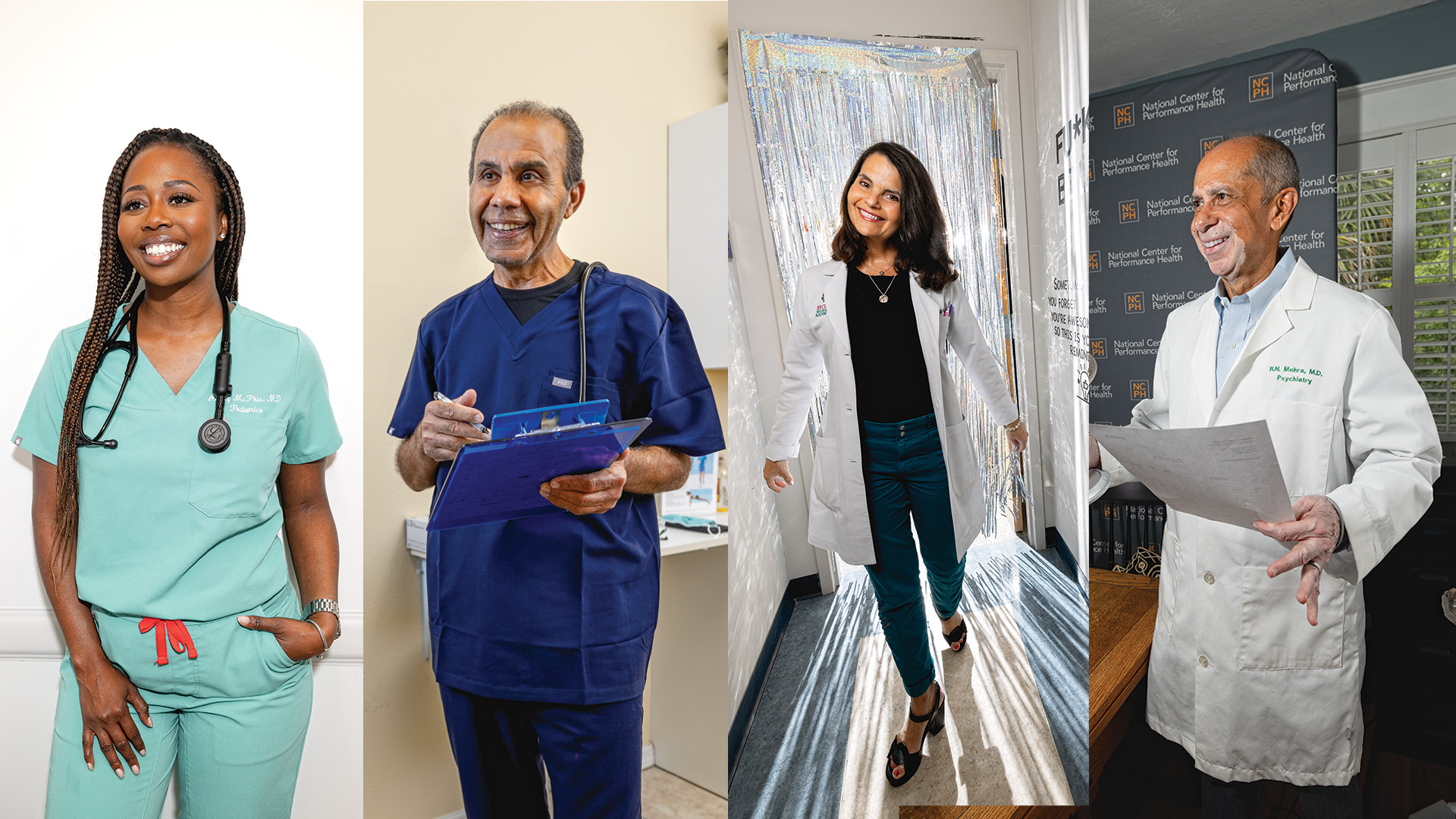To become a doctor is one of the most noble accomplishments, leading to a career of service in a highly respected profession. It can be a costly, grueling, decade-plus journey to the finish line. After earning an undergraduate degree and passing the MCAT, there’s medical school, which could cost upward of $200,000, including intensive academic and clinical training and exams. To follow, several more years are dedicated to residency. Once they pass the national board exam, they can fully, independently practice medicine at last.
As if all that is not enough, life events can throw huge curve balls into aspiring doctors’ plans. We sat down with four successful, respected Tampa physicians who shared their humble beginnings. Despite health scares, family emergencies, financial distress and natural disasters, these doctors overcame their circumstances to become the community-serving heroes that they are today. Their white coats and smiling faces may cover their scars – many of which are invisible – but here, they open up about their stories of perseverance, vision, commitment and downright human triumph along their paths to becoming doctors.
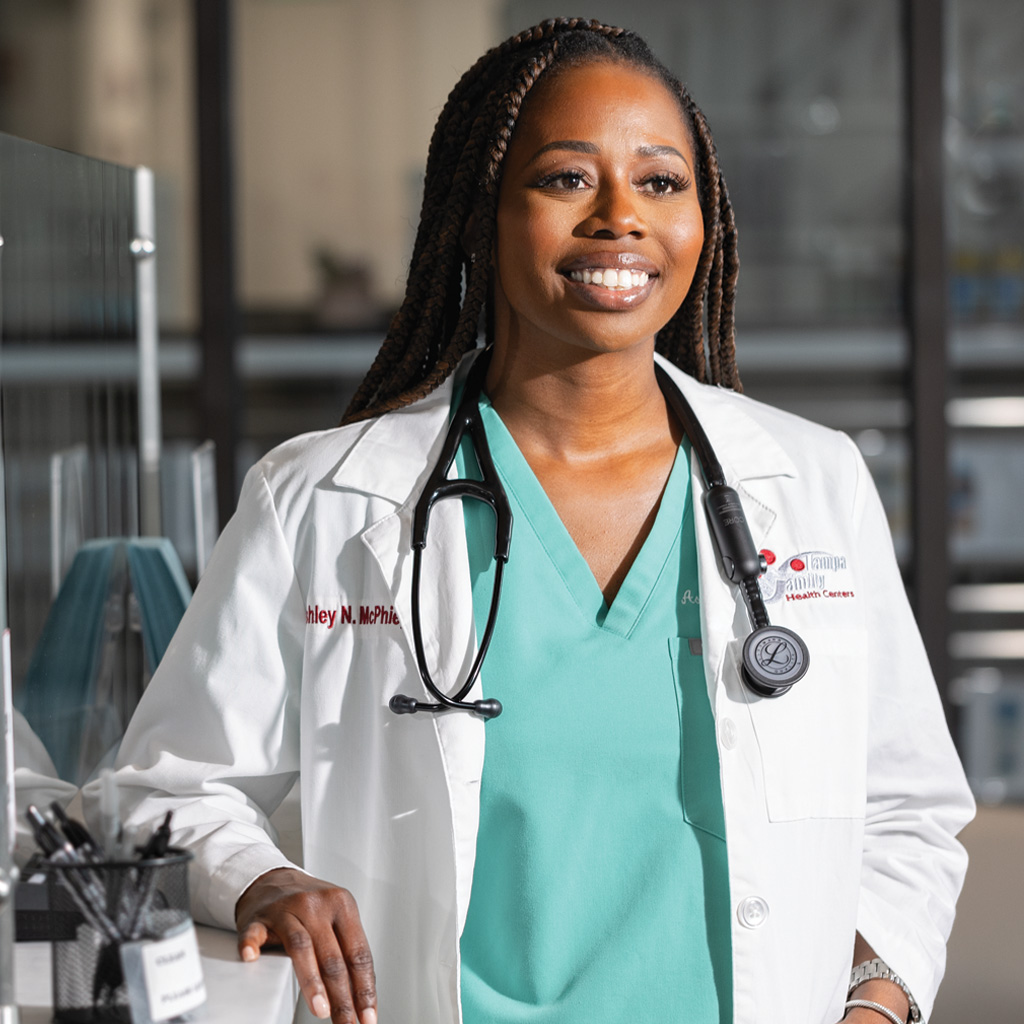 Weathering the Storm
Weathering the Storm
Ashley McPhie, M.D.
Ashley McPhie grew up in Ocean Springs, Mississippi, with hardworking parents: a father juggling two full-time jobs with school and a mother working as a caregiver. With no doctors in her family, her drive to become one ignited while volunteering at an inner city New Orleans school, where she watched health issues get in the way of students’ success.
“I didn’t come from having a lot,” she recalls. “I knew I needed to work really hard in school to pay my way. I knew medical school was expensive and I never dreamed I could make it happen.”
McPhie worked several jobs and obtained multiple scholarships and loans to make higher education a reality. But two years into her bachelor’s degree at Xavier University of Louisiana, while studying for the MCAT, her life was completely upended by the costliest natural disaster in U.S. history — Hurricane Katrina. Her apartment roof caved in, she lost all of her possessions and she lost power and water for weeks.
“It was very humbling to realize that everything you have can be taken from you in a second,” she says.
Determined to stay on track and apply to medical school on time, she enrolled in the University of South Alabama in Mobile, driving 45 minutes to attend classes, as well as the Community College of Denver and the University of Tennessee for online courses. Taking anatomy and physiology and doing labs on her computer seemed nearly impossible, but she found a way. She wound up moving into the FEMA trailer parked in her aunt’s driveway in New Orleans for a semester, which was humbling in itself.
Thankfully, Xavier accepted all of her credits. Not only was she able to graduate on time, but she also completed medical school as one of a handful of Black women in her class, finished her residency and landed a job as a general pediatrician for Tampa Family Health Centers (TFHC). Just four years later, she became director of TFHC’s pediatric department and four years after that, at 37, she was promoted to its chief medical officer, bringing her to tears of joy. TFHC provides accessible care to a diverse community, and while this type of work isn’t for everyone, she couldn’t be happier where she is.
“People think underserved means they deserve less, but they deserve the most and we give them the best,” she says. “This is exactly where I want to be. Now, I can impact even more change and be out in the community and shout that same message even more from the rooftops.”
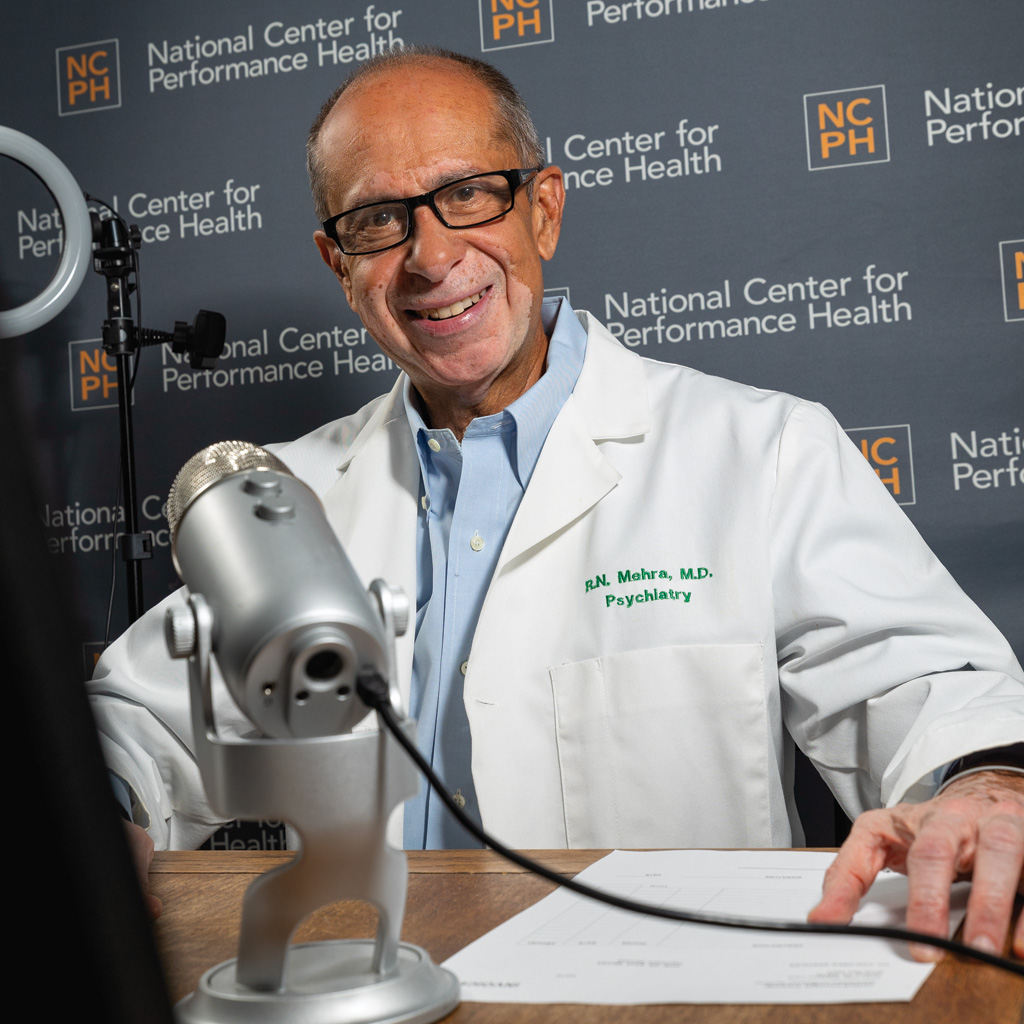 Battles of the Mind
Battles of the Mind
Rahul Mehra, M.D.
Rahul Mehra was born in Agra, India, to a father working as a biology professor and a mother serving as a school teacher. When he was 5, they moved to the U.S. He fondly recalls his happy upbringing in Gaffney, South Carolina, grounded in faith and embraced by their community, despite being the only Indian family in town. But harder days were ahead.
Mehra and his brother both took the path to becoming physicians, but Mehra struggled with self doubt, retaking courses at the Medical University of South Carolina. In his third year of medical school, his world turned upside down when his mother attempted to end her life. Seeing her struggle to get treatment and care led Mehra into psychiatry, as well as an inspiring mentor in a clinical rotation. Mehra observed mental health’s stigma and society’s lack of awareness and lack of access to providers. He channeled his pain and sadness into a desire to be part of the solution. After learning that symptoms often start early but become harder to treat later, he became focused on wanting to help children identify and treat symptoms as soon as possible.
In residency, Mehra faced his own health challenges, being diagnosed with ulcerative colitis and a few months later, a herniated disk that temporarily stopped him from being able to move his left arm, but he said he drew upon the quiet determination he learned from his traditional Indian parents to push through it all.
“It helped me be a better physician to understand from a patient’s perspective what they go through,” Mehra reflects. “All the adversity in my life is a gift from God that I embrace and use to be a more humble servant.”
Mehra has spent over 30 years as a practicing psychiatrist, mostly in foster care. He has held numerous leadership roles: overseeing Baker-Act receiving in Hillsborough County and serving as medical director of Joshua House and currently for Children’s Home Network. In 2007, he established the National Center for Performance Health, working with professional sports teams, schools, private businesses and professionals to address emotional health challenges at every age. His latest focus is on creating Emotional Vaccines, a term he is working to trademark that refers to short videos focused on self care and parenting tips.
“Traditional mental health treatment is reactive, not proactive,” Mehra comments. “I’m taking a public health policy approach to emotional well-being. If one person’s life changed, I’ve done my job.”
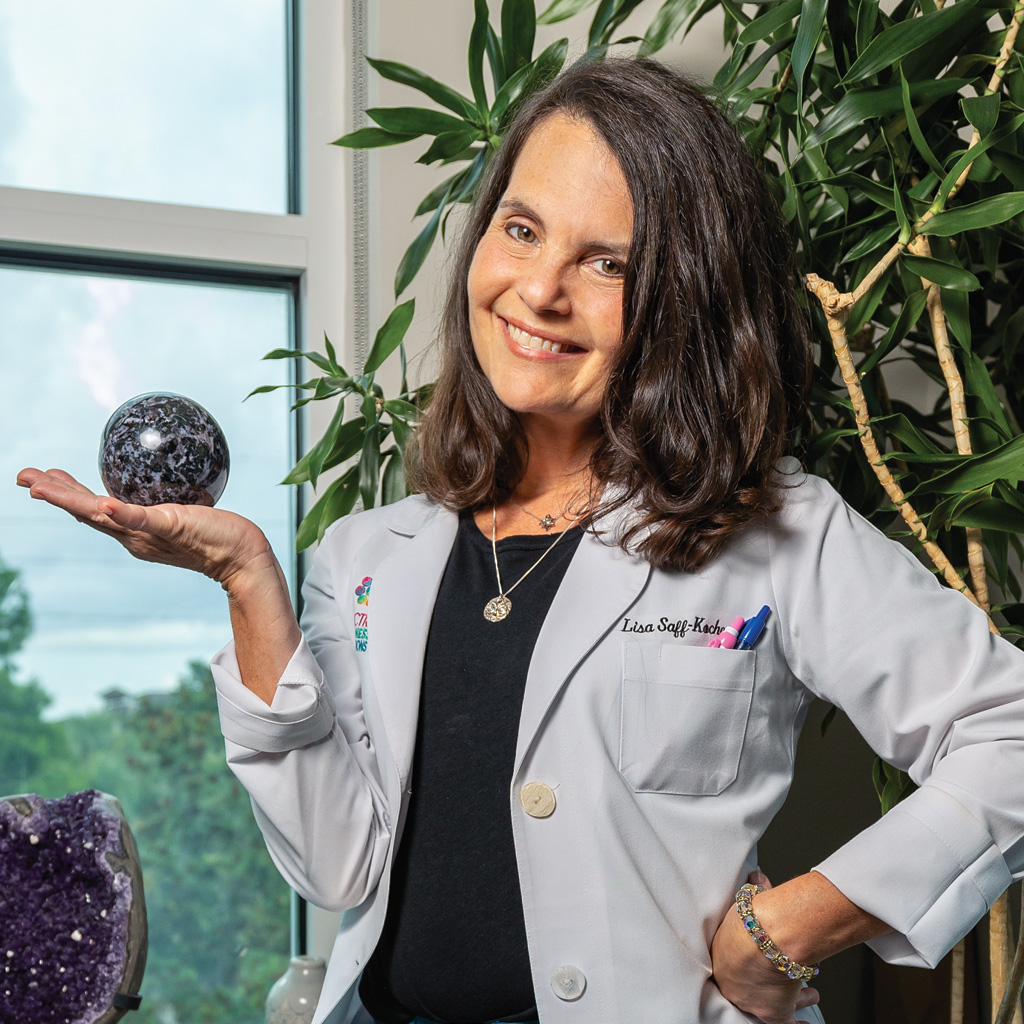 Fighting for Her Life
Fighting for Her Life
Lisa Koche, M.D.
During a routine physical for summer camp, Lisa Koche was diagnosed with leukemia at just 15 years old. Throughout high school, she endured excruciating pain from chemotherapy, spinal taps and bone marrow biopsies. Nonetheless, she graduated seventh in her class at Chamberlain High School and was accepted into Emory University for premed.
“I knew pretty quickly after starting the journey that I wanted to be a doctor,” she recalls. “I was fascinated with medicine, loved science classes and wanted to figure out why I got sick.”
At last, she received a clean bill of health and college felt like a fresh start, but two years in she received shocking news at a routine gynecological visit: A mass was found in her ovary and her leukemia was back. Koche moved to New York to be treated by a specialist, restarting dreaded chemo and surviving chemo-induced heart failure. She refused to let her health issues get in the way of graduating on time and going to Emory for medical school. She dedicated her career to prevention, choosing internal medicine for the broadest approach.
Her residency focused on cardiovascular disease at a private practice where she landed a job in prevention and piloted the first ever gastric bypass program with nutritional and psychological treatment before pursuing her fellowship in anti-aging and regenerative medicine.
More health issues arose after she became pregnant, including Hashimoto’s Disease and psoriasis, and she found relief and results with a medical professional who became her partner to open the private practice Spectra 23 years ago. They help patients using integrative, holistic tools, in addition to traditional and functional medicine.
“Each one of my twists and turns brought in a new modality,” she reflects. “Everything that happened to me became a gift to allow me to tap into the most cutting edge of medicine and synthesize it into the most digestive format for people.”
Those cutting-edge therapies include stem cells, IVs, mitochondria optimization and healing with energy, frequency and light, which she offers at Spectra. She says she is proud to be one of the only internal medicine practitioners to not enter a big conglomerate.
“My practice is a complete blend of traditional, holistic, cutting edge and spiritual interventions that have allowed me to get more of the ‘why,’” Koche explains.
After her own tumultuous health journey, Koche is writing her second book, continuing work with inspirational public figure Tony Robbins and leading retreats and workshops on healing.
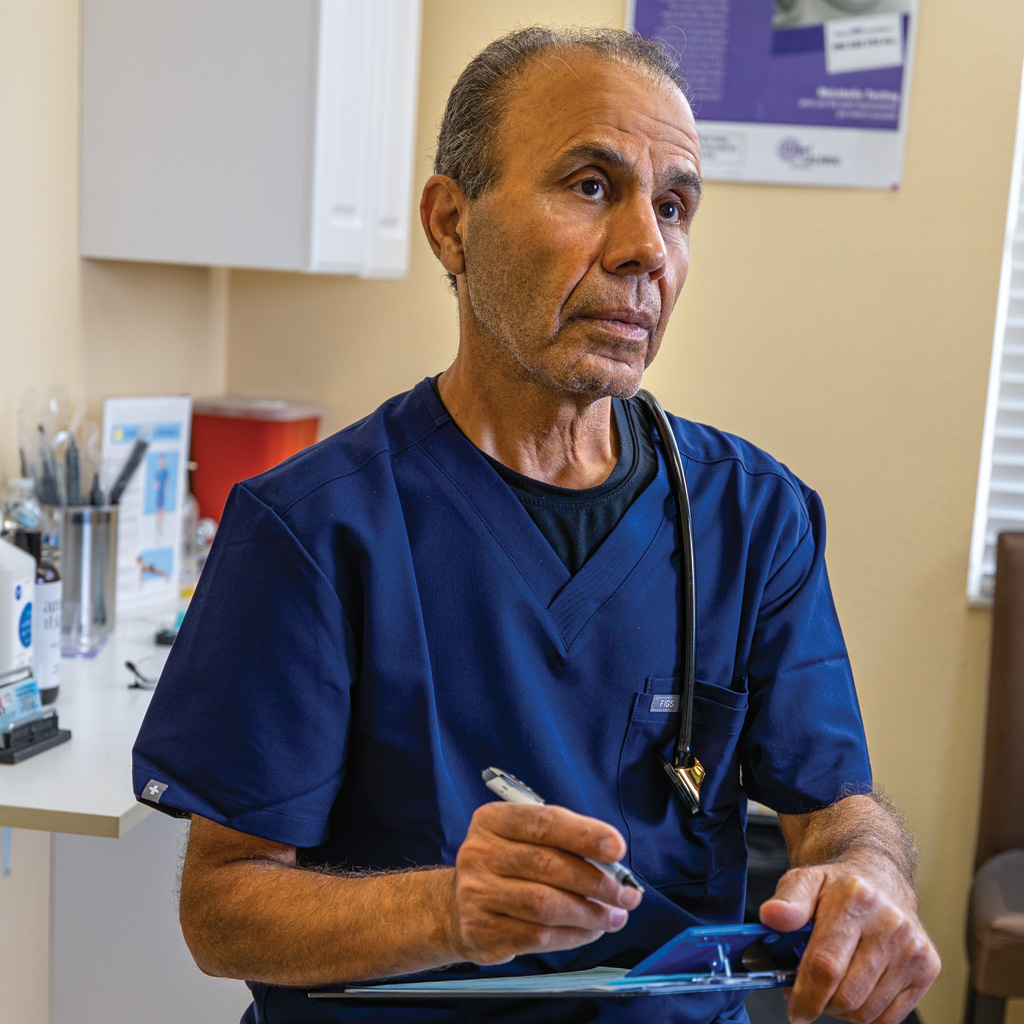 With Pennies in His Pocket
With Pennies in His Pocket
Ebrahim Karkevandian, D.O.
Ebrahim Karkevandian was one of 14 siblings born in Iran, sharing a two-story apartment without air conditioning and spending summers sleeping on the roof. When Karkevandian was 6, he fell from that roof while playing and landed in the hospital in a coma.
“It got to the point where they were going to pull the plug because there was nothing left to do,” he recalls. “My mom begged them to give me one more day.”
On that extra day, Karkevandian began to stir and slowly, perhaps miraculously, he regained his strength.
“I easily could be buried,” he says. “I got here because the right doctor decided to give me a chance to live. It was my goal after that to be a doctor and help society.”
Not only did he want to be a doctor, but he also wanted to move to America, the land of opportunity, where his future children could live better. His mother, a housewife, embraced his vision, but his father, the breadwinner, was adamantly opposed, refusing to offer financial support. So Karkevandian’s mom told him to sell the Persian carpet he had gifted them and use the money toward his journey. At 19, speaking no English and not knowing a soul, Karkevandian obtained a green card and made the leap to Colorado. After paying for his plane ticket, a taxi ride, a month of English lessons and a letter home — he was left with four pennies in his pocket to start his journey to medical school.
“What kept me going was my dream,” he shares. “I was always thanking God for being here and I knew I was going to make it.”
To help pay his bills, Karkevandian worked side jobs and applied for loans. He met his wife in undergrad and they had two young children when he started medical school at Kansas City University, driving 600 miles to visit home twice a month. He also traveled for his residency and fellowship in New Jersey.
Karkevandian is proud that he overcame so many obstacles, not only to become the first doctor in his family, but also to achieve esteemed leadership positions, such as director and chief of the emergency department at St. Clare’s Hospital Sussex Campus in New Jersey, national director of medical toxicology for PhyAmerica (formerly among America’s largest emergency physician contractors) and director of the antiterrorism task force at Overlook Hospital in New Jersey. Currently, he works at the HCA Florida Trinity Hospital and is eyeing retirement.
“I achieved all my goals,” he shares. “Nothing is easy, but there is always a way around it.”


